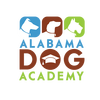|
“It’s just a phase.” “He’ll grow out of it.” “That’ll stop once she gets to know you.” “That’s just a puppy thing.” These are all statements I hear over and over as a dog trainer, especially when talking with clients who have new dogs and puppies.... And the statements are generally true: even confident puppies go through phases where they are scared by sights and sounds that never bothered them before. Adult dogs have grown out of putting everything in their mouths because they’re done teething. Newly adopted dogs do end up coming out of their shell when they leave the shelter and become comfortable with their new owners. The majority of behavior problems are from puppies and adolescent dogs (dogs under two years old); adult dogs are more mature and tend to have fewer behavior problems.
So, if I can tolerate my dog’s problems now, they will all eventually go away on their own? My friend has a three-year-old son who’s mostly potty trained. He still has accidents occasionally. His parents know that he will grow out of these potty problems in the next year or so; but regardless of that knowledge, his child parents are going to do everything they can do every day to help their toddler be successful in potty training; otherwise their life would be miserable! For puppy owners, knowing your puppy will “grow out of” behavior problems, does not mean that you should sit back and accept that your new puppy is going to make your life miserable. Oh, I know, you love your new little furry friend and she really is a lot of fun to be around! But I also know that puppy mouthing is very painful! Yes, your puppy will probably grow out of it, but there are techniques for lessening the mouthing that you can put into place now, which will allow you to continue enjoying your puppy to the fullest as you wait for her to grow up and mature. Your newly-adopted adult dog just came home from the shelter and is – predictably – afraid of being left alone in his new house, where he’s never been before and doesn’t feel comfortable yet. But you must leave him alone sooner or later, and when you do, you come home to a mess: he’s chewed up your couch, pulled down your curtains, gotten into the cabinet and ate a lot of food that’s going to upset his stomach. Yes, as he settles into the home, gets used to the routine, and learns to trust his new family, he will probably become more relaxed while you are away; but in the meantime, for his safety as well as your peace of mind, there are some important training steps you can take that will teach him even from the very beginning that it’s ok to be alone and that he can begin to trust his new owners to always come home. All he needs is love and security and he’ll be the perfect dog! As a dog trainer I know that the frightening thing about dog ownership is that these new puppies and dogs you just welcomed into your life may not actually grow out of these difficult behaviors on their own. The happy-go-lucky puppy who’s suddenly afraid of everything may not actually be going through a puppy “fear period,” but will actually grow up to have unusual and irrational fears. Many extremely mouthy puppies will grow into extremely mouthy dogs, if they don’t learn about appropriate mouthing at an early age. Many dogs who are afraid to be left home alone will only be more afraid once they form a strong bond with their new family. And changing these undesirable behaviors is very difficult if the dog has been practicing them his whole life. Genetics and early experiences (experiences even in the first two or three weeks of puppyhood) play as big a role in predicting the behavioral traits of your adult dog as the training you can do when he first comes home with you. Since we don’t often know about the genetics or upbringing of our dogs, we have to assume that the behavior problems they have today are generally going to stick with them, if we don’t do any training. Giving our dogs love and security is an immensely important first step, but most behavior problems will require more than that to improve. So, what do I do to help my dog – and help myself! – today? At its core, dog training is about using your behaviors to change your dog’s behaviors. Training is about using management options to prevent problems from happening (keep your shoes put away in the closet so your mouthy puppy doesn’t chew them up!), and teaching your dog alternative behaviors to do in place of the undesirable behaviors (teaching your scared dog to be calm in a crate while you leave the house). Finding a trainer who can help you with these techniques as soon as you get your new dog is important to not only teach the dog good behaviors that will help you right now, but is equally important to prevent bigger problems from forming. The monetary cost and time commitment of a training class is miniscule when you compare it to the cost of the stress and aggravation of a dog who doesn’t know the house rules or still has behavior problems after months in the new home.
2 Comments
ks for sharing the article, and more importantly, your personal experi ence mindfully using our emotions as data about our inner state ancvd knowing when it’s better to de-escalate by taking a time out are great tools. Appreciate you reading and sharing your story since I can certainly relate and I think others can to
Reply
3/22/2024 05:51:01 am
I just wanted to say thank you for writing this blog! It's really helpful and has lots of good tips. I learned a lot about dog training and how to deal with some common problems. Keep up the good work, and I'll be looking forward to reading more blogs from you!
Reply
Leave a Reply. |
AuthorElizabeth Morgan specializes in training service dogs as the trainer and owner of Alabama Dog Academy. Archives
January 2024
Categories |
|
256-434-1747 (call or text)
[email protected] |
Proudly powered by Weebly



 RSS Feed
RSS Feed


